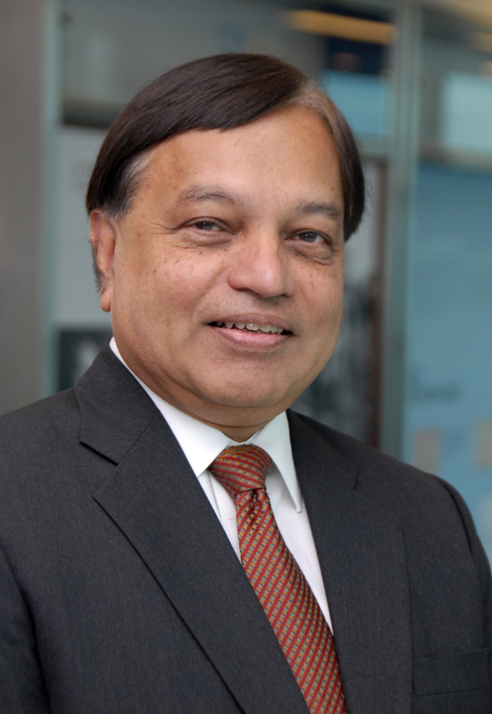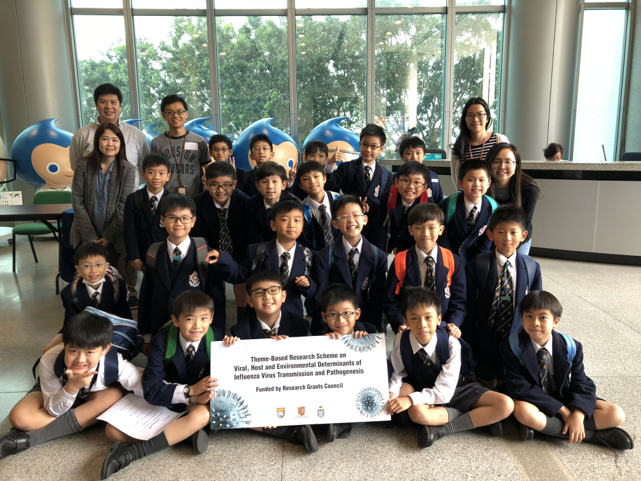When reports emerged of COVID-19 at the end of 2019, people realised the outbreak should not be taken lightly and voluntarily wore masks to prevent its spread. For years, people have worn masks to prevent the spread of influenza and other respiratory diseases. But there was little evidence of the impact of wearing masks on reducing the spread of infectious airborne droplets.
In 2015, Professor Malik Peiris from The University of Hong Kong started a research regarding influenza virus transmission. When the COVID-19 pandemic began in 2020, the only measures available for containment were non-pharmaceutical interventions in nature i.e. measures that interrupt transmission. Although the primary focus of the research project was to understand the transmission of influenza, data was also gathered on other seasonal coronaviruses that cause respiratory disease. One of these studies showed that the use of surgical masks reduced the spread of airborne particles from coronavirus infected patients, information was also relevant to SARS-CoV-2. Thus, the research program not only provided new findings of importance for the control of influenza but also provided key knowledge early on to help control the spread of SARS-CoV-2.
In 2015, Malik Peiris, Professor and Chair in Virology at the School of Public Health, The University of Hong Kong, and his team of scientists, ranging from virologists, epidemiologists, clinicians, pathologists, and engineers, rolled up their sleeves in the lab and started working on a project that was of vital importance to humans– “Viral, Host and Environmental Determinants of Influenza Virus Transmission and Pathogenesis”.
Influenza is a major threat to global public health. Hong Kong is situated at an epicentre of pandemic emergence. Pandemic influenza arises from animals at unpredictable intervals and can spread worldwide within weeks. Seasonal influenza is a predictable yearly occurrence that is associated with significant morbidity and mortality.
The team realised that understanding the transmission of respiratory viruses was of foremost importance for the protection of public health. They hoped to understand its scientific basis and identifying options for influenza control and aimed to learn more about animals-to-humans and humans-to-humans influenza transmission as well as providing insights on novel treatment options such as new-generation influence vaccines.

Professor and Chair in Virology at the School of Public Health, The University of Hong Kong Malik Peiris
Professor Ben Cowling, who was on the research team, led and prepared a
document titled “Non-pharmaceutical Public Health Measures for Mitigating the Risk and Impact of Epidemic and Pandemic Influenza”, which also served as an early guide to preventing COVID-19 transmission in non-pharmaceutical ways.
Moreover, the team participated in numerous of local and international policymaking events for the containment of COVID-19 and influenza.
The team developed and shared the diagnostic methods for SARS-CoV-2. The team shared the reagents with more than 140 laboratories benefitting people from over 70 countries. Before commercial testing kits were made available to the public, these diagnostic methods were shared immediately via WHO’s website and some countries used their reagents to detect the first cases of SARS-CoV-2.
So far, the team has published more than 150 peer-reviewed international papers in publications such as Nature, Science, The Lancet Infectious Disease and The Lancet Respiratory Medicine, which have been cited more than 4,800 times in total.
The research provided the public with scientific evidence which supported the principle of “universal masking” in the face of respiratory virus pandemic. This strategy has played an important role in the containment of COVID-19.
The team provided real-time data on newly emerged virus pathogens, such as H7N9 and H5N6, to WHO, FAO, and other international agencies, which helped assess the risks of COVID-19 and prepared the use of vaccines. They also participated in biannual meetings of influenza vaccine strain selection by WHO and contributed to the development and evaluation of the organisation’s “Tool for Influenza Pandemic Risk Assessment”.
The team found out that the defeathering machines used in live poultry markets generated infectious airborne particles and advised the department on modifications implemented in the city’s live poultry markets so that zoonotic risk from avian influenza can be further reduced. They also sent in submissions to the Legislative Council of Hong Kong regarding the “Study of the Way Forward for the live poultry trade in Hong Kong”.
Professor Peiris and his team are also committed to nurturing and training the next generation of researchers. “Little Dr Flu”, an outreach program for primary schools, teaches students about influenza and respiratory infections. In addition, a total of 53 postgraduate research students were trained and postdoctoral fellows and research assistant professors are promoted to tenure-track academics in Hong Kong and overseas.

© 2025 University Grants Committee Secretariat. All rights reserved